TRQ vs MOOG: It’s About Time We Discussed These Two
Stylethority is reader-supported. When you buy through links on the site, we may earn a commission.
You know, it’s a bit strange. I’ve covered both TRQ and Moog on separate occasions, but I’ve never pitted them against each other.
I’m not gonna lie. Recently, Moog has been slightly disappointing in some aftermarket segments. Can TRQ fill the vacuum?
Well…yes and no.
Moog’s ball joints like this popular pick are still a staple and TRQ lags in dust boots or serviceability. With control arms, the MOOG Problem Solver (see example) reigns supreme with better bushings and solid durability.
However, TRQ’s hub assemblies have surprised me! Good quality for the price and some respectable durability/sealing on this TRQ bearing:
This neat guy has been running well for quite a few thousand miles already!
There’s a lot to unpack re: TRQ vs Moog – from warranty to manufacturing, or product line variety.
If you’re too lazy to read everything, here’s a summary:
➥➥ MOOG trumps TRQ in terms of ball joints, control arms, and some axle parts. For all its decades of existence, the brand has become the leader in terms of vehicle applications and quality.
This is thanks to Moog’s Problem Solver line. Lifetime warranty, extra anti-corrosion properties, and reinforced construction. TRQ is still far away from conquering these segments:
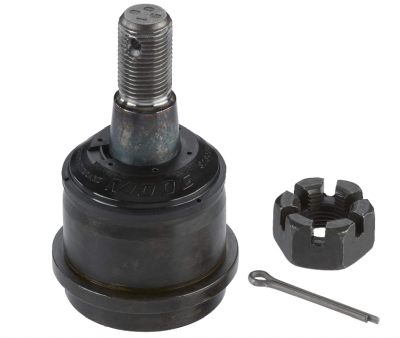
Reinforced powder-coated metal towers over standard ball joints. Neat dust boot shield to keep dirt, water, and debris away. Fantastic quality for the price.
| Product | Image | ||
|---|---|---|---|
|
Control Arms Winner
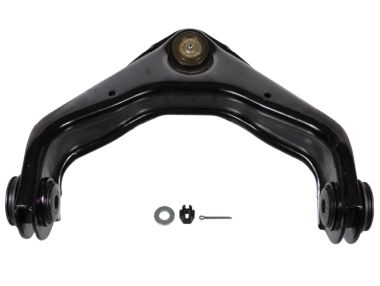
|
MOOG Problem Solver (KS)
|
Check Prices & Fit |
➥➥ TRQ, however, has been gaining some serious steam!
This is most apparent in the wheel bearings segment. The brand’s hubs feature better sealing than other comparable parts; the upgraded elastomers are neat.
Additionally, the guys employ a similar approach to Detroit Axle. With Moog, you have to single-pick your parts – TRQ has some fantastic suspension part bundles on a budget. Great if you want a full vehicle re-vamp.
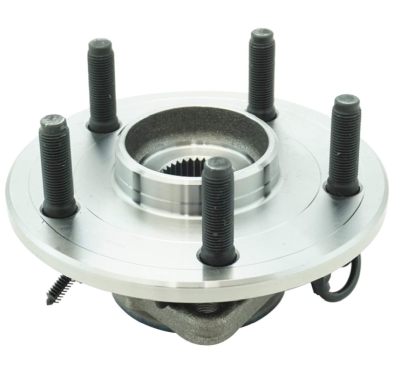
Surprisingly fine quality for the price. Premium sealing and elastometer, more than decent bearing durability too. Comes with a limited lifetime warranty.
| Product | Image | ||
|---|---|---|---|
|
Bundle for the $
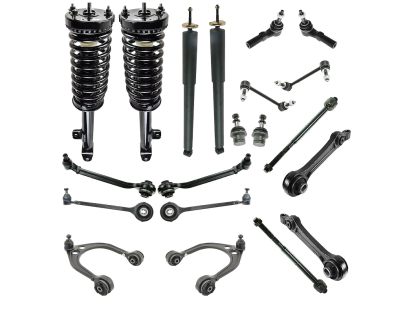
|
TRQ Suspension Kit
|
Check Prices & Fit |
With the initial recap out of the way, let’s move on to the meat of the comparison. It’s like a whole BBQ party, really!
Important: I won’t discuss shock absorbers or strut assemblies here. For more on these, check my comparison between TRQ and Monroe.
Starting with the warranty terms
When you buy aftermarket parts, you want to be sure you can do something in case things break. Pretty natural, if you ask me.
Moog has a dual warranty system. On the standard parts, you get a 3-year warranty (or 36000 miles, whichever of these two happens first). With the Problem Solver line of products, you get a lifetime warranty.
There’s some good news and some bad news. The good news is that Problem Solver products are plenty when it comes to ball joints and control arms! The bad news is, the majority of Moog wheel bearing and hub assemblies are not Problem Solvers.
To identify which part is a Problem Solver, use this simple guide: CK for control arms (see top-rated example) and K for ball joints (read reviews).
What about TRQ?
Well, TRQ simply slaps a Limited Lifetime Warranty term on all of its aftermarket parts. This is a definite step up from other comparable brands like Detroit Axle where you get a 10-year warranty.
Moog vs TRQ wheel bearings:
The closest this matchup can get
I’ll start the particular component comparisons with the most heated example: wheel bearing and hub assemblies. There are some trade-offs on both sides.
On one hand, TRQ offers a better warranty (limited lifetime versus Moog’s 3 years/36k miles).
As an extra, the elastomers come with some premium sealing for better longevity/durability. The roller bearings themselves are quite sturdy too.
Moog has laser-focused on two things: anti-corrosion properties and servicing the ABS cord better.
Most wheel bearings from the brand feature a fortified, abrasion-resistant ABS cord. The socket connections are also strengthened, and the wheel stud bolt is reinforced too.
This approach has guaranteed Moog a pretty loyal fanbase in the Salt Belt, where the anti-corrosion properties are pretty much a must.
If you ask me, it’s a total toss-up here for casual drivers. Either brand’s wheel bearing will work fine overall, their fine-tuning is just slightly different.
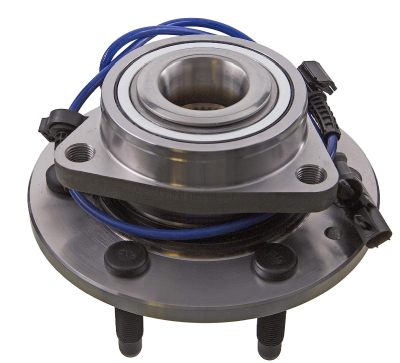
Sturdy and corrosion-resistant for those of you in the Salt Belt states. Fantastic ABS cord design and some darn tough wheel bolt studs to complement this.

Surprisingly fine quality for the price. Premium sealing and elastometer, more than decent bearing durability too. Comes with a limited lifetime warranty.
TRQ vs Moog:
Ball joints and control arms
Even with the decline in quality (so sad to see this…) Moog is still a better choice here. As I elaborated earlier, that’s because you have the Problem Solver lineup which extensively covers these two components.
A friendly advice is to stay away from the non-CK (control arms) and non-K (ball joints). The standard Moog parts are quite possibly worse than TRQ.
Moog’s Problem Solvers focus on several factors that make them worth the money:
–
- Powder-coated metal for tougher conditions/resistance to impact.
- Upgraded dust boot shields (ball joints).
- Vastly improved bushings (control arms).
- An extra layer of coating to battle rust or corrosion (control arms).

Reinforced powder-coated metal towers over standard ball joints. Neat dust boot shield to keep dirt, water, and debris away. Fantastic quality for the price.
TRQ is still catching up in these component segments. The brand still doesn’t cover as many vehicle applications and hasn’t invested efforts into expanding the fitment/marketing.
You won’t actually find any ball joints on Amazon, for example. You can head to 1A Auto’s site (TRQ’s parent company) if you want to check some reviews.
In any case, what TRQ offers in this case is the standard experience you’d get with typical knock-off brands.
The slight benefit here is that the company’s well-respected and local (American), so customer service would be a bit easier.
A difference in product strategy:
Standalone vs kits
As I pointed out earlier, TRQ also does something that Moog has always glanced over:
Yeah, I’m talking about suspension bundles like this neat little kit.
This is an approach some newcomer brands to the suspension/steering scene used to get their foothold on the market. Detroit Axle does it a lot, and TRQ has started assembling some bundles too.
If you’re doing a complete overhaul, you’ll love this approach. It saves you time and it sure as heck saves you money. Anybody can see the appeal and that’s where TRQ does things well.
Quite often, TRQ’s kits include shocks or struts too. I’ve covered the brand’s suspension extensively – you can check out my TRQ vs KYB post too.
These kits aren’t anything too flashy, but they can get the job decently done on a tight budget.
| Product | Image | ||
|---|---|---|---|
|
Bundle for the $

|
TRQ Suspension Kit
|
Check Prices & Fit |
Manufacture country origin:
Is it China all the way?
Moog’s a tough nut to crack, that’s what I’m gonna tell ya. The company has spread out its supply chain so wide across the globe, there’s not a single location you can mainly pin it down to.
In general, a lot of the contemporary Moog production happens in facilities in Mexico, China, Turkey, or even India. The spread fluctuates depending on market conditions and logistics – I bet COVID-19 saw some more focus on Mexico manufacturing, for example.
TRQ is more straightforward and all the details are on 1A Auto’s site, which is the American online retailer that owns TRQ.
Basically, all TRQ parts are ‘fit and road-tested’ in the brand’s Massachusetts R&D facilities.
This means that the production is 100% outsourced (possibly to China, Taiwan or maaybe Mexico?). However, at least there’s an extra layer of local QA/inspection before the components hit the market.
Regardless of manufacturing differences, TRQ always has my respect for something that not many other brands do so well. I’m talking about the post-purchasing process, where you enter DIY waters.
TRQ has, hands down, the best installation guides from any budget aftermarket brand. If your vehicle is somewhat common, you can bet they’ll have a clear, informative installation video to help you out.
Here’s one just to showcase the efforts:
Wrapping things up
TRQ gaining steam has been a refreshing sight, but the brand still has ways to go to match Moog in several aftermarket segments.
If you want me to slap some labels, I’d say that Moog has slowly been descending into mid-quality. At the same time, TRQ has been creeping up from entry-level to lower mid-quality.
Neither is as great as classics like SKF when it comes to wheel bearings, for example. However, MOOG is better fitted than TRQ for Salt Belt states or some Canadian states.
For casual driving experiences, TRQ’s pretty much equivalent to the performance/durability you’d get from the market leader. For harsher climates, another MOOG-grade equivalent could be ACDelco wheel bearings.
Control arms, axles, and ball joints are fully in Moog’s territory. This is offset by TRQ’s financially attractive suspension kits for prospective buyers looking for a complete ride overhaul.
As always, I’m gathering opinions and personal perspectives. If you have had any experience with either brand (I’m sure you do!), please let me know in the comments. Mentioning your vehicle (brand, model, year) helps out a lot, too!
- Woolx vs Smartwool: Discussing Some Details - October 4, 2023
- Best Struts For Honda Accord & Element: What Works - September 22, 2023
- Bilstein vs Monroe Shocks: My Opinion On What Works Best - September 19, 2023
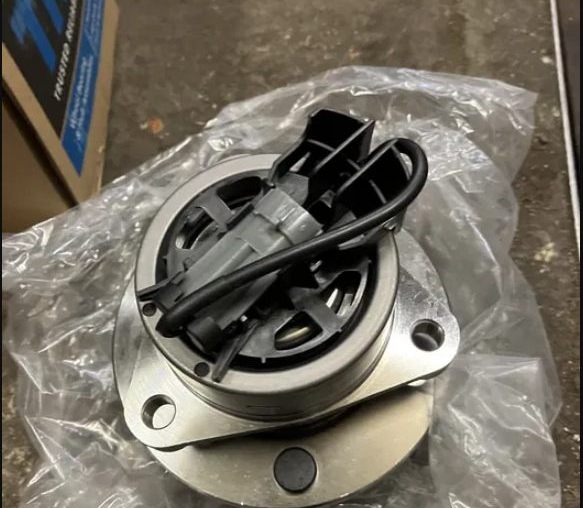

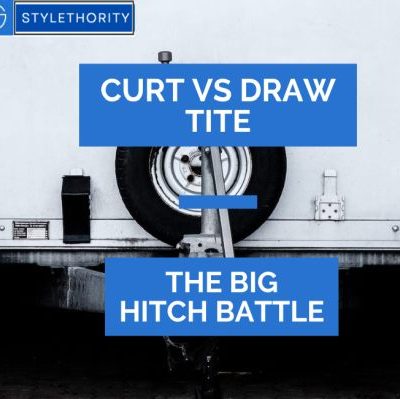
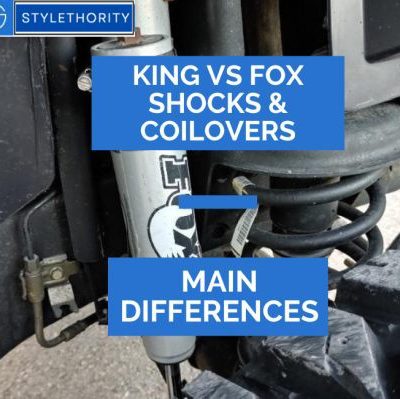
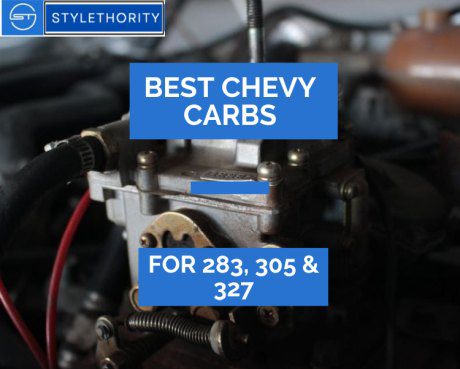
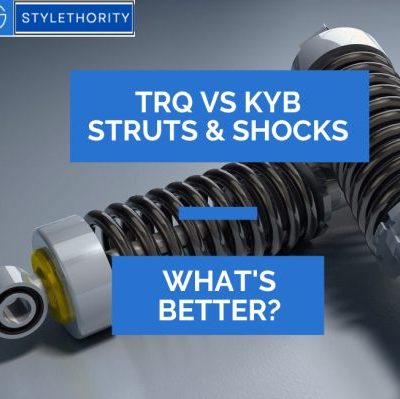
I was torn between Moog ab TRQ for suspension parts (control arms, ball joints, sway bars, inner and outer tie rods). I found the 8 piece kit with TRQ and read the reviews on it. They were all good. Plus it was $75.00 cheaper than buying Moog parts. Its all for a 2004 V6 Mustang Convertible I bought 2 months ago. 49,000 miles. Ball joints were already bad so I’ve decided to do it all. TRQ also offered limited warranty. Based on all that, plus it being a Florida car, I’m going with TRQ. Thanks for the article!
Hey James!
I hope all goes well with the kit’s installation if you decide to DIY things, and then in terms of the parts’ performance once installed 🙂 2004 Mustang Convertible? Now that’s a neat ride!
Thanks for taking the time to leave a comment!
Best,
Xander
Hey Folks,
My ride is a 2006 Toyota Highlander Hybrid with 277K miles.
I just ordered the TRQ kit and the hub bearing knuckles for both sides today. After much thought. I have to admit the DIY videos from the TRQ team swayed my decision. I only needed to replace the bearings on tue driver’s side but thought of the price and time to complete one side so completing both jusy makes more sense. Oddly enough I have watched TRQ videos for years but this is my first time trying there products. My biggest factor was the fact that I have an all wheel drive vehicle and many of the parts I came across only mentioned front wheel drive even Moog.